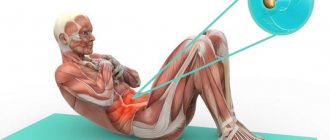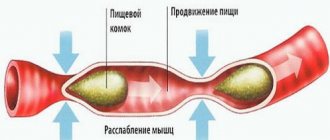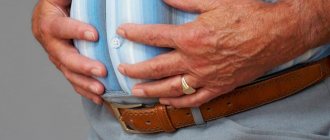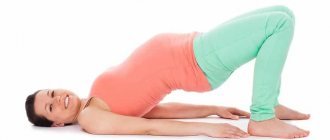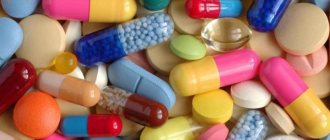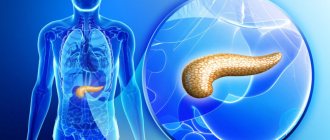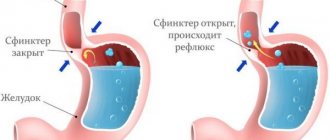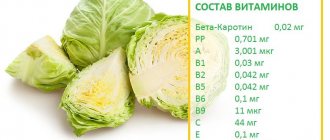The concept of peristalsis
The intestine is the largest organ of the gastrointestinal tract, in which the final processing of food products, their neutralization and absorption of useful minerals into the blood occurs. If peristalsis (motility) is impaired, then all these processes are inhibited. This process causes harm to the body and inconvenience to the person.
When stool stagnates in the intestines, toxins begin to enter the bloodstream and poison the body, causing side symptoms.
Symptoms of intoxication and decreased intestinal motility include:
- frequent headaches;
- constant feeling of fatigue;
- heaviness and pain in the abdomen;
- loss of appetite;
- a person gains weight, although he eats the same as usual, or even less;
- the appearance of a rash on the face, possibly on the body;
- sleep problems;
- bloating, flatulence, which worsens after eating;
- changes in stool, there are fewer of them, they take on a denser shape;
- frequent and painful constipation, which can in rare cases be replaced by bouts of diarrhea;
- general malaise and even fever.
Neither an adult nor a child will be happy with such symptoms of intestinal arrest. Therefore, you need to force your intestines to work on their own, or seek help from a doctor.
Moreover, the second option will be much better, because the cause of weak motor skills can be absolutely any disease , or the normal functional state of the body. But to figure out what exactly caused the intestinal stoppage can only be done by conducting an examination and passing tests.
Products
To normalize the dynamic functioning of the gastrointestinal tract, it is necessary to adhere to a certain diet. List of allowed and undesirable products:
| Improves peristalsis | Worsening peristalsis |
|
|
Be sure to read: Atonic constipation: causes, symptoms and treatment methods
Causes of weak peristalsis
Many factors influence intestinal function, and now we will try to find out which of them slow down and even completely stop peristalsis, and which can stimulate intestinal motility.
Reasons that slow down peristalsis:
- Unbalanced nutrition , when the diet is dominated by foods with high calorie content, foods of artificial origin (fast foods with a lot of spices and sauces and foods with added chemicals - chips, crackers), lack of regularity of meals, its speed (eating a sandwich on the way to office).
- Treatment with antibiotics or other drugs that reduce the balance of intestinal microflora.
- Diseases of the gastrointestinal tract of all parts, including the stomach, liver, and gall bladder.
- Tumors in the intestine, both small and large.
- Behavior of surgical intervention on the intestine.
- Inactive lifestyle , constant sedentary work, frequent climate change.
- Predisposition to constipation, its chronic course.
- Frequent stress, negative experiences.
- Disturbance in the functioning of nerves, improper innervation of the intestinal walls.
Factors that enhance intestinal motility:
- Constant walking and exercise.
- Maintaining a balanced diet.
- Compliance with the drinking regime is very important for constipation in order to soften the masses and improve their passage through the intestines.
- Using intestinal stimulation - massages and morning warm-ups.
- Normalization of lifestyle, regular and sufficient sleep, adherence to a schedule.
- Undergoing constant annual medical examination and timely treatment of intestinal diseases.
If your life mostly or even completely consists of items on the first list, then do not be surprised that intestinal motility weakens.
To prevent and correct this, live according to the points in the second list and then intestinal problems will leave you for a long time.
But if peristalsis is already impaired for some reason, then there are means to improve intestinal motility in adults and children.
Complex mechanisms of intestinal motility
Disturbance of intestinal motility, you can also find the name dyskinesia - this is the improper functioning of the muscles that are located along the walls of our intestines and have two layers.
One of them is longitudinal, and the second is circular. They work harmoniously and generate a kind of wave, and its intensity depends on which part of the intestine they are in.
For example, in the small intestine there are several types of peristaltic waves and their contractions range from very slow to rapid. Moreover, they can duplicate each other and occur simultaneously. The slowest movement of food occurs in the large intestine. Therefore, it is also normal to observe very slow peristaltic waves here.
However, even in this case there are some tricks. During the day, this intestine begins to contract strongly several times, thereby pushing its contents towards the anus.
The colon begins to reflexively contract almost immediately after you eat. That is, it reacts to the fullness of the stomach.
Normal contraction rates for the duodenum and small intestine are up to 12 oscillations per minute, for the colon - up to 4 oscillations (or about 12), and in the rectum - no more than 3. If these oscillations slow down, then nutrients cannot be fully absorbed, in the same way , just like waste food cannot leave your body normally.
It is clear that these undigested residues are an excellent source of toxins and all kinds of pathogenic microflora begin to multiply in them. The consequence is a whole range of gastrointestinal pathologies, such as diarrhea and diarrhea, various inflammations, ulcers and polyps.
To deal with these complications, it is necessary to understand what causes them.
How to improve peristalsis?
Restoring intestinal function and enhancing peristalsis is possible only by using several types of treatment simultaneously, namely:
- Folk remedies. This is the first thing that is better to try than to swallow advertised pills, which can only cause harm if the diagnosis is not established.
- Drugs that stimulate bowel function can also be purchased at the pharmacy, but before doing so, you should consult a doctor so that he can select them for you individually and also prescribe the required dosage.
- An excellent way to enhance peristalsis is gymnastics. It helps increase blood flow to the intestines, as well as the pelvic organs, thereby helping to move feces forward through the intestines. Helps strengthen the walls of the large and small intestines.
- You can increase peristalsis by following a certain diet. Its main rule is that we eat and drink everything that is healthy, and don’t even try anything that is not healthy.
Improving peristalsis will largely depend on how the person himself feels about solving his problem.
If he carelessly does gymnastics, washes down pills with coffee after lunch at a pizzeria, then he will not be able to improve his bowel function.
In this case, the intestines did not work, do not work, and will not work. But for those who want to normalize the functioning of their intestines, we will tell you in more detail about each point in the treatment of weak peristalsis.
What is peristalsis?
This term refers to the rhythmic contractions of the muscular walls of the intestine, which promote the movement of food masses from the thin to the thick section. This factor plays an important role in the processes of absorption of nutrients and removal of waste products from the body.
Peristaltic contractions involve smooth muscle fibers that are present in the intestinal walls. One layer is located longitudinally, the other - transversely. Coordinated contractions contribute to the creation of waves, the frequency of which is different in different parts of the organ. Several types of contractile movements spread throughout the small intestine, which differ in speed. They can be slow, medium and fast. Often several types of waves appear simultaneously.
Food masses move slowly through the large intestine; peristaltic waves in this section have the lowest speed. 1–2 times a day, rapid contractions occur in the organ, promoting the movement of feces towards the anus. Peristalsis of the colon is based on a reflex that occurs when food enters the stomach. The normal frequency of contractions of the duodenum is 10 times per minute, small - 9-12 and large - 3-4. At the moment food moves towards the anus, the frequency indicator increases to 12.
Weak peristalsis slows down the absorption of nutrients and makes it difficult to move feces towards the rectum. Remains of undigested food, feces and toxins linger in the body, gradually poisoning it and creating ideal conditions for the proliferation of pathogenic microorganisms.
Impaired intestinal motility is the cause of most pathologies of the digestive system, characterized by constipation and diarrhea, abdominal pain, ulcers and benign neoplasms.
ethnoscience
Before drinking pharmaceutical medicine, try these methods to enhance peristalsis :
Wheat bran
- Take two apples and grate them. Add to them a tablespoon of honey and two tablespoons of oatmeal. Squeeze the lemon juice and add it and a couple of tablespoons of warm water to the mixture. Eat it throughout the day.
- Grind plantain seeds and take a teaspoon of them with meals.
- A couple of tablespoons of wheat bran are washed down with a small amount of water or mixed with it and eaten for breakfast.
- Take ten grams of buckthorn root and pour half a liter of boiling water over it. Let the broth brew and drink it throughout the day instead of tea.
- Take two glasses of dried apricots and prunes and grind them in a meat grinder. Add to them a package of senna and two tablespoons of propolis. Pour in liquid honey, approximately 200 ml. Take this mixture before bed in the amount of a couple of teaspoons.
Methods for restoring peristalsis
To normalize intestinal motility, you need complex therapy, which should include: taking medications, doing certain exercises, and eating healthy foods. Traditional medicine will also help improve the functioning of the gastrointestinal tract.
Drug therapy
Treatment aimed at enhancing motility and increasing the tone of intestinal muscle fibers is prescribed by a specialist after making an accurate diagnosis. The drugs aceclidine, vasopressin and proserin improve the functioning of intestinal motility. Medicines with a laxative effect should be used to speed up bowel movements. The latest medications are divided into several subtypes:
- Laxatives that act on the large intestine. There are synthetic and herbal preparations. Synthetic (Bisacodyl, Phenolphthalein, Guttalax) are intended to relieve constipation and intestinal atony in the postoperative period. Abuse of such medications leads to addiction, colic and allergies. Herbal preparations, which are based on medicinal herbs (hay, licorice, buckthorn, rhubarb root), increase the tone of the muscle fibers of the colon and restore natural bowel movements. Among herbal preparations, Regulax is the most popular. It is effective in the treatment of intestinal atony resulting from malnutrition, stress shocks, and physical inactivity.
- Laxatives that affect the small intestine. These include castor oil. The action of this remedy is aimed at facilitating the movement of processed products through the intestines and accelerating the process of defecation. After use, the product takes effect within 2-3 hours. Often, taking oil provokes the formation of moderate cramps in the abdomen.
- Laxatives that affect the entire intestine. These include Glauber's salt and Epsom salt. These are the most effective means that enhance peristalsis, which are effective for severe forms of constipation. The drug begins to act after 1-1.5 hours.
In addition to the listed medications, the therapy complex may include medications that stabilize the nervous system.
Proper nutrition
Nutrition plays a huge role in the treatment of this pathology. With the help of healthy foods, not only intestinal motility improves, but also the entire body is cleansed of harmful substances. There are two groups of foods that increase and decrease intestinal motility.
The first group includes:
- plums, persimmons, sour apples, melon, apricots;
- low-fat sour cream, cottage cheese, yogurt;
- buckwheat, oatmeal, barley porridge;
- figs, raisins, dried apricots, prunes;
- raspberries, strawberries, grapes, gooseberries, blueberries, watermelon;
- chilled compotes, juices from berries and fruits, mineral water, grape wine;
- seafood, seaweed;
- carrots, beets, tomatoes, radishes, cucumbers, radishes, turnips, onions, fresh and sauerkraut, greens;
- sunflower, olive, flaxseed and corn oil;
- nuts.
The second group includes:
- fresh and sweet baked goods made from wheat flour with the addition of yeast;
- hot strong tea, cocoa, coffee;
- butter, eggs;
- red grape wine;
- beef, pork;
- berry jelly with potato starch;
- chocolate products;
- quince, pear;
- rice, semolina, pearl barley;
- bird cherry, chokeberry.
It is recommended to eat vegetables fresh. Freshly squeezed beet, carrot or cabbage juice is very beneficial for the intestines.
You need to eat in small portions and often. Eliminate unhealthy foods from your diet: smoked meats, products made from butter and yeast dough, fried and too fatty foods, canned food, sweets. You need to drink up to two liters of plain water per day. For proper functioning of the intestines, half an hour before breakfast you need to drink 250-300 ml of cold water.
ethnoscience
You can restore intestinal motility using traditional medicine recipes:
- Wheat bran. Use 2-4 tsp. grains per day, washed down with water.
- Buckthorn infusion. Pour 2 tsp. plants 0.5 l. boiling water and drink like tea after 20-30 minutes.
- A mixture with a laxative effect. You need to grate 2 green apples and mix with 4 tsp. oatmeal and 2 tsp. sprouted wheat grains. Then add 2 tsp to the resulting mass. honey, 2 tsp. chopped nuts, 2 tbsp. boiled water and juice of half a lemon. Use the finished product throughout the day.
- Plantain seeds. Pre-grind the seeds in a coffee grinder and consume 1 tsp before meals. Once in the intestines, they swell and form a sufficient volume of processed food for natural bowel movements.
- Dried fruit mixture. The following composition has a laxative effect: grind 0.4 kg of pitted dried apricots and prunes in a meat grinder and mix with 0.2 l. honey, a pack of medicinal herb senna and 4 tsp. propolis. The resulting mixture should be consumed in the evening before bed, washed down with a small amount of boiled water.
For a mild laxative effect, we recommend sauerkraut brine, fruit decoctions, freshly squeezed juice, tea with dried apples and cherries.
Exercises that enhance peristalsis
A sports lifestyle (running, tennis, swimming, horseback riding) has a beneficial effect on the functioning of the intestines. You can massage your stomach yourself, harden yourself with cold water in the shower and perform special exercises. Such activities will help tone the abdominal muscles and improve intestinal function. Below is a set of exercises:
- From the “lying on your back” position, slowly lift your upper body. Perform 5-15 repetitions.
- Lying on your back, bend your legs at the kneecaps. Then slowly bring them closer to the chest, staying in this state for 5-10 seconds. Such actions release gases from the intestines.
- Lying on your back, perform rotating actions with bent legs, similar to riding a bicycle. This exercise increases and enhances blood circulation in the pelvis.
- Jump on the spot; you can use a jump rope for this.
- In the “standing on all fours” pose, alternately stretch your legs back. The back needs to be arched. Such actions improve blood circulation in the pelvis.
Upon completion of the listed exercises, perform slow, shallow squats.
A complex of therapeutic measures aimed at restoring intestinal motility should be determined by a specialist. To improve the functioning of the gastrointestinal tract, the patient must follow all the doctor’s prescriptions. Then negative consequences and complications can be avoided.
Medicines
In order to increase intestinal permeability, laxatives are released. These can be tablets, powder, syrup, drops. All laxatives should be divided into three groups:
| Effect of drugs | Description |
| Drugs that affect peristalsis of the entire intestine. | Here you can use sodium sulfate or magnesium. But you should pay attention to the fact that these substances, increasing the osmotic pressure in the intestines, increase peristalsis. The process goes quite quickly, and the medications take effect after two hours, or even earlier. Therefore, you should not take them before your trip. |
| Laxatives acting in the small intestine. | These medications include oils. They envelop feces, facilitating their easy passage through the intestines. At the same time, they also speed up motor skills themselves. The effect of a laxative occurs within two to six hours. |
| Laxatives acting in the large intestine. | These are drugs from a group of irritants. They tone smooth muscles, toning the intestinal walls. You cannot use them yourself, as addiction and intestinal atrophy may occur. Only a doctor should prescribe such laxatives. Such drugs include Regulax, Guttalax, Bisacodyl, Laxigal and others. |
Reasons for increased peristalsis
The etiology of increased intestinal motility or the reasons that lead to this deviation from the norm is varied: it includes both external and internal factors.
- The most common reason for accelerated peristalsis is poor nutrition. We can talk about (spoiled, expired) products or fast food, instant food. Depending on the individual characteristics of the human body, the pathological process is caused by fatty and high-calorie foods.
If we consider the process as simplified as possible, we can say that “unhealthy” food, objectively or from the point of view of a particular organism, provokes fermentation processes, so the intestines begin to contract faster.
Gymnastics
To enhance peristalsis, an active lifestyle is very important, as well as gymnastic exercises that enhance intestinal motility, namely:
- the familiar “bicycle” exercise - spin imaginary pedals while lying on your back;
- You need to pump up your abs not only for a smooth tummy, but also for the intestines; 10-20 approaches are enough here;
- lying on your back, alternately raise your straight legs up;
- press your legs bent at the knees to your chest and clasp them with your arms, do this while lying on your back;
- in a knee-elbow position, lift your straight legs up one by one and bend your back;
- deep squats;
- You need to complete the complex by jumping rope or on the spot, a hundred times is enough.
Symptoms of the disorder
If intestinal motility is impaired, a person will experience the following symptoms:
- Pain in different areas of the abdomen, intestinal colic. The onset and disappearance of discomfort is sometimes associated with eating, defecation, or other aspects.
- Increased gas formation.
- Stool disorders, which are expressed in chronic constipation. Sometimes diarrhea takes over. But more often it is difficult to achieve defecation; only laxatives or a cleansing enema help.
- Increase or, conversely, pathological decrease in weight.
- A constant lack of feeling of comfort, severe pain, and problems with bowel movements provoke the development of depressive conditions. A person feels irritated and suffers from insomnia.
- Feeling of weakness, low-grade fever, lack of appetite, nausea and other symptoms of intoxication of the body. Allergic reactions that were not present in the anamnesis may appear. Skin lesions – rashes or pimples – also often occur.
These symptoms are characteristic of all diseases of the gastrointestinal tract. Therefore, before starting to normalize peristalsis, it is necessary to carry out a differential diagnosis of the pathology. It includes scatology, endoscopy, irrigoscopy, colonoscopy. These studies make it possible to accurately determine the factors causing intestinal dyskinesia. They will make it possible to understand how to restore or improve its peristalsis.
3Therapeutic measures
One of the main ways to improve intestinal motility is to follow a strict diet. The patient’s diet needs to include foods that contain plant fibers, and avoid eating foods that contain starch and easily digestible carbohydrates. It is worth limiting your intake of coffee and black tea, and eating chocolate, butter and chicken eggs less often.
To enhance intestinal motility, you should drink more berry and fruit juices, consume fermented milk products, dried fruits, oatmeal and buckwheat porridge are healthy, season salads with olive or sunflower oil, and bread only with bran. It is advisable to eat vegetables fresh. It is recommended to drink carrot and beet juice. Meals should be divided into 5 times a day. Smoked foods, spicy and fried foods should be excluded from the diet.
You should also drink at least 2 liters of water per day.
Treatment includes the use of enemas, massage, herbs, and compresses on the abdomen. To eliminate all toxins, it is necessary to carry out internal cleansing.
To improve the contraction of the intestinal walls, the patient is prescribed laxatives, for example, Guttalax or Bisacodyl. They are presented in the form of tablets or drops, and there are also rectal suppositories. Thanks to the use of these products, intestinal motility improves, they help get rid of constipation that occurred after surgery. However, it is worth remembering that with prolonged use of laxatives, addiction occurs and a person may experience allergic reactions.
To normalize the functioning of the central nervous system, the specialist prescribes antipsychotics or antidepressants, depending on individual characteristics.
A popular drug is called Duphalac. It regulates the rhythm of colon emptying and is used for persistent constipation. This medication is contraindicated for people suffering from diabetes, galactosemia, or who have intestinal obstruction. Side effects include bloating, vomiting and nausea. If the patient has taken a high dose of the drug, diarrhea and abdominal pain are possible.
To improve the breakdown of heavy food, the doctor prescribes it. With their help, intestinal motility improves. These drugs include: Mezim, Festal and Creon. The course of treatment is 10 days.
In addition to the above, the specialist prescribes antiemetics, for example, Cerucal or Metoclopramide.
gastri.ru
We most often do not notice exactly how our body functions and do not pay attention to its needs. However, once the activity of some organs is disrupted, it is simply impossible to ignore the symptoms that arise. This is the case with the functioning of the digestive tract. After all, any changes in its normal functioning immediately affect the quality of our life. A fairly common reason for visiting a doctor is a violation of intestinal motility, which can become increased and sluggish. Let us consider the symptoms of such pathological conditions and discuss their possible treatment.
In general, the term intestinal peristalsis itself is used to refer to the natural contractions of the intestinal walls, which contribute to the movement of the contents of digested food through it.
Increased intestinal motility
Symptoms
The main manifestation of increased peristalsis is frequent stool, which can be different in structure (not necessarily liquid). In some cases, this phenomenon may be accompanied by other unpleasant symptoms - pain in the lower abdomen, bloating, and the appearance of mucus in the stool. In addition, many patients note that they are bothered by the feeling of insufficient bowel movement after bowel movements.
Increased intestinal motility is quite dangerous for our health, because with such a disorder, the body simply does not have time to fully process food and obtain useful substances from it. In addition, frequent bowel movements can cause dehydration.
How is intestinal motility corrected, what is the treatment for it?
Therapy for increased peristalsis directly depends on the causes of its occurrence. If this disorder has developed as a result of some irritating substances entering the intestines, then frequent stools most often normalize on their own after the aggressive particles leave the body. In this case, to normalize the condition, you can take various medications, for example, absorbents that can bind irritating substances and remove them from the body.
If the cause of increased peristalsis is a disorder such as “irritable bowel syndrome,” then its therapy involves a complete change in eating habits. The patient should refuse frankly unhealthy foods and products that provoke flatulence. To eliminate pain, the doctor usually prescribes antispasmodics, for example, Dicetel, Spasmomen or Duspatalin. If there is a significant increase in bowel movements, Imodium is usually used, and if this symptom is moderate, preference is given to Smecta, Filtrum, activated carbon, etc.
It should be taken into account that increased intestinal motility can also be observed if the patient has neurogenic problems without an inflammatory process. In addition, this pathological condition is possible with impaired water metabolism, increased venous pressure, decreased osmotic pressure of colloids, as well as with portal hypertension, right ventricular failure and blockage of the lymphatic vessel system. In all these cases, the elimination of increased peristalsis should begin with identifying and correcting the root cause of this disorder.
Sluggish intestinal motility
How does intestinal motility manifest itself, what are the symptoms?
The main manifestation of sluggish intestinal motility is constipation, in other words, lack of stool. This phenomenon may be accompanied by other unpleasant symptoms, including a feeling of lethargy, headaches, and insomnia. Many patients also complain of nausea, decreased appetite and bad mood. They are also concerned about the appearance of an unpleasant taste, a feeling of discomfort, heaviness and fullness in the abdominal area. Common symptoms of sluggish intestinal motility also include bloating and pain.
Treatment
You can cope with sluggish intestinal motility without medications. To do this, you need to consume more food containing dietary fiber. They help retain water in the gastrointestinal tract, increase the volume of stool and make it soft, stimulating peristalsis. So experts advise eating more raw vegetables and fruits, consuming melons, seaweed, stone fruits and bananas. In addition, the diet should include dairy products, crumbly cereals, wholemeal bread and vegetable oil. It is worth giving up strengthening foods (rice, coffee, tea, cottage cheese, chocolate, flour).
Patients with sluggish intestinal motility need to drink more water - about two liters per day, and also accustom their body to bowel movements at the same time. Getting enough daily physical activity is extremely important.
If sluggish peristalsis is a symptom of some ailment, it is worth treating them. In certain cases, it makes sense to take laxatives and traditional medicine that have a laxative effect. To begin with, you should give preference to the most harmless products, like Duphalac, which can also be purchased under the name Lactulose. Taking castor oil, buckthorn bark and senna leaves has a good effect.
If there are disturbances in intestinal motility that continue for a long time or recur again and again, you should consult a doctor to determine the causes of such problems and select effective treatment.
Ekaterina, www.rasteniya-lecarstvennie.ru
PS The text uses some forms characteristic of oral speech. Google
www.rasteniya-lecarstvennie.ru
Other methods to improve peristalsis
Before applying the above measures, a consultation with a gastroenterologist should be carried out with the appointment of FGDS, colonoscopy and irrigoscopy to identify organic lesions.
Exercise and physical education
- I.P. - lying on his back. You need to slightly bend your knees and imitate riding a bicycle. Can be done several times a day for a few minutes.
- I.P. - lying on his back. You need to pull your legs towards your stomach with your hands, and then return to the starting position. Repeats several times.
- I.P. - lying on his back. The essence of this method is to raise both legs and try to throw them behind your head. It is necessary to repeat 15-20 times.
- I.P. - kneeling, palms resting on the floor, spine straight. It is necessary to lift first the left and then the right leg in a bent state. The exercise should be repeated 10 times for each lower limb.
- I.P. - kneeling, palms resting on the floor, spine straight. You need to take a deep breath, and as you exhale, bend your back down, relax your stomach, and stand in this position for a while. Then you need to return to the original position, while exhaling, pull in your stomach and bend your back as a cat would do (“house”). The exercise is done 25-30 times.
- I.P. – standing, arms along the body. During a deep exhalation, you need to pull in and out your stomach. Repeat this complex at least 5 times.
- I.P. - standing, hands resting on the sides. We walk in place, raising our knees high.
Self-massage also has a good effect, when a person, lying on his back, gently massages his stomach in a clockwise direction. The massage should be soft, gentle, without much effort.
Drug therapy
To improve intestinal motility, prokinetics (Motilium, Ganaton) can be prescribed. If there are no contraindications, use laxatives (Duphalac, Prelax).
Often prescribed by gastroenterologists, Mucofalk is a herbal medicine made from flax seeds. It is a natural drug, so it can be used during pregnancy and breastfeeding.
prokishechnik.info
Treatment options
Restoring the digestive system requires an integrated approach. The therapeutic course includes taking medications, performing special exercises, and creating a balanced diet. Decoctions of medicinal plants that can increase intestinal motility are highly effective. The stimulant drug should be prescribed by your doctor; you should not choose it yourself.
You can increase intestinal contractility using a laxative. Currently, there are a large number of drugs that affect certain parts of the digestive system. Glauber's salt stimulates peristalsis of the entire intestine. This is the most effective and fast-acting drug. Taking it increases osmotic pressure, which slows down fluid absorption. Defecation occurs 1–2 hours after taking the tablet.
A laxative that increases contractions of the small intestine, facilitating the movement of digested food towards the anus. The effect is observed 5–6 hours after consuming the drug. Drugs that improve the functioning of the large intestine can be produced on the basis of plant and chemical components. They increase the tone of the organ and accelerate the excretion of feces. To treat dyskinesia in adults, antidepressants, tranquilizers and antipsychotics can be used. How to strengthen intestinal motility with diet?
All foods are divided into 2 groups: those that strengthen contractions and those that weaken them. The latter include: chocolate, coffee, strong tea, baked goods, jelly, rice porridge, pears, apples, chicken eggs, butter. Acceleration of intestinal peristalsis occurs when consuming berry fruit drinks, kvass, white wine, mineral water, kefir, fresh vegetables, and dried fruits. You can normalize the functioning of the digestive system with the help of freshly squeezed juices of carrots, beets and cabbage. These same vegetables can be used to make salads. You need to eat as often as possible, portions should be small. It is necessary to exclude fatty and fried foods, sausages, canned food, and confectionery products from the diet. Drinking a glass of water before meals helps relieve constipation. You must consume at least 2 liters of fluid per day. The doctor will advise you on how to improve your bowel function using traditional methods.
kiwka.ru
Reasons for violation
Poor motor skills may be due to the following conditions:
- Neglect of diet and principles of nutrition. An unbalanced diet with a predominance of fatty, heavy, high-calorie foods.
- Chronic gastrointestinal diseases.
- Tumor processes in elements of the digestive system.
- Operations on the abdominal organs.
- Physical inactivity is a complete lack of physical activity or exercise.
- Elderly age. Although young women during pregnancy, newborn infants, and older children often need to improve intestinal motility.
- The tendency to have sluggish motor skills can be genetically programmed, that is, hereditary.
- Treatment with medications that provoke dyskinesia. For example, taking antibiotics (if it is not combined with the use of probiotics, it can cause dysbiosis). And imbalance of microflora, in turn, affects intestinal motility.
Often the cause of disorders in the digestive system is disruptions in the functioning of the central nervous system.
How to restore and improve gastric motility, drugs to improve peristalsis - Website about
Gastric peristalsis is an important function in the digestive system of the body, which processes and evacuates the bolus of food from the organ to the small and large intestines.
Its muscle fibers, which have a circular and longitudinal structure, contract in a certain mode, creating a wave that moves the food bolus.
These movements occur reflexively, therefore a person cannot influence this process with consciousness, since the autonomic nervous system “controls” the motor function of the digestive organ. Depending on the state of the stomach, when there is food in it or not, the rate of contraction of muscle fibers will be different.
Gastric motility
As soon as the food bolus enters the junction of the esophagus and the stomach, muscle contraction of the organ begins. There are three types of motor skills:
- rhythmic contraction of muscle fibers - begins gradually in the upper part of the organ, with intensification in the lower part;
- systolic muscle movements - at the same time there is an increase in muscle contractions in the upper part of the stomach;
- general movements - contraction of all muscle layers of the stomach leads to a reduction in the food bolus by grinding it with the help of gastric secretions. Depending on the type of food, part of it, after processing in the stomach, is evacuated into the duodenum, and part of the food bolus remains in the stomach for further grinding and digestion by gastric enzymes.
Depending on how the peristalsis of the stomach works, the health of the entire digestive system of the body depends.
Pathological changes in gastric motility
A disorder of the contractile ability of the stomach can be primary, that is, congenital or acquired, and secondary, which occurs as a consequence of other diseases of the body. Impaired gastric motility leads to the following pathological conditions in the functioning of the digestive organ:
- violation of the muscle tone of the stomach - the contractility of the muscular frame of the organ can be increased, decreased or completely absent, that is, be in hypertonicity, hypotonicity or atony. This pathology affects the digestion function of the food bolus. The stomach muscles cannot fully absorb a portion of food for digestion, followed by its evacuation into the duodenum;
- weakening of the sphincter - a condition develops when a bolus of food, not treated with gastric secretions, falls into the intestines. With increased muscle tone, stagnation of gastric contents occurs, as a result of which pathological processes in the stomach begin to develop;
- slowing or accelerating peristalsis of the digestive organ - this pathology provokes an imbalance in the intestines, which leads to uneven absorption of food in the intestines. The liquid component of the gastric contents can be evacuated into the intestines much earlier, and the solid elements remaining in the stomach will be much more difficult to digest;
- gastric evacuation disorder - a violation of the tone and muscle contractions of the digestive organ, leading to an accelerated or delayed process of evacuation of food from the gastric organ to the intestines.
Impaired motility is the result of various diseases of the stomach and intestines, such as gastritis, peptic ulcers, erosions, benign and malignant tumors, which affect the quantitative production of enzymes or hydrochloric acid in gastric juice. Peristaltic disorders can also occur during surgery on an organ or due to blunt trauma to the abdomen.
Deterioration of the motor function of the gastric organ is possible as a complication of diseases of other body systems, such as the endocrine system, when diabetes mellitus indirectly affects gastric motility.
With hypoglycemia, the amount of glucose in the blood decreases, which begins to affect the enzymatic composition of gastric juice, as a result of which the function of muscle contraction of the digestive organ suffers.
Important! Problems that appear in the digestive system, in the form of disturbances in gastric motility, accompanied by clinical manifestations, require mandatory examination and treatment by a gastroenterologist, and, first of all, the underlying disease.
Symptoms of motor dysfunction
Pathological changes in gastric motility in the form of delayed evacuation of the food bolus provoke the appearance of symptoms such as:
- syndrome of rapid food saturation - with low tone of the gastric organ, due to the slow evacuation of stomach contents, eating a small portion of food causes heaviness and a feeling of fullness in the stomach;
- heartburn and pain in the epigastric region - reflux of gastric contents into the esophagus occurs due to weakness of the sphincter of the cardiac part of the gastric organ;
- nausea, vomiting;
- belching with sour air;
- drowsiness after eating;
- weight loss;
- bad breath due to gastric atony.
Signs of accelerated evacuation of a food bolus from an organ are characterized by the following symptoms:
- pain in the epigastric region;
- nausea;
- abdominal pain of a cramping nature;
- periodic stool disorders in the form of diarrhea.
The presence of such pathological manifestations of the digestive system requires examination for diseases of the digestive organs, which were the cause of impaired motility of the digestive organ.
Diagnostics
Diagnosis is carried out on the basis of a study of the patient’s objective data, laboratory tests, and instrumental examination methods:
- X-ray of the stomach with barium is a method that allows you to track the motor and evacuation functions of the organ;
- Ultrasound – abnormalities in the muscle layer of the stomach are monitored;
- electrogastrography – examines the motility of the gastric organ;
- endoscopy - the sensitivity threshold of the stomach wall is determined.
After examination and clarification of the cause of the malfunction in the motor function of the body’s digestive system, treatment is prescribed.
Treatment of peristalsis disorders
Treatment of gastric motility must necessarily be comprehensive, which, in addition to medications that improve peristalsis, is carried out with mandatory adherence to a diet in the diet.
Diet
For successful treatment, a necessary condition is adherence to the daily regimen:
- eating 5-6 times a day with short intervals between them;
- small portions, one-time consumption of food products in a volume of no more than 200 grams;
- stop eating three hours before bedtime;
- steaming or stewing food;
- dishes in the diet are presented in the form of pureed soups, slimy porridges, chopped dietary meat of chicken, turkey, rabbit;
- exclude the consumption of certain foods, such as peas, beans, lentils, cabbage, grapes, raisins, which contribute to increased gas formation in the stomach;
- daily consumption of fermented milk products;
- water ration consumption is about 1.5-2 liters of liquid.
After clarifying the diagnosis and establishing the cause of disturbances in the motor function of the stomach, medications are prescribed to improve the motility of the digestive organ.
Drug treatment
How to improve peristalsis, and what medications are required for this? Depending on the clinical manifestations, first of all, treatment is prescribed for the underlying disease, as a result of which increased or sluggish peristalsis appears.
Complex treatment includes the use of drugs that have the following properties:
- stimulating effect, helping to increase the contractile function of the muscular frame of the gastric organ;
- antiemetic effect;
- general strengthening properties;
- preparations containing potassium and calcium, which are involved in the process of transmitting nerve impulses.
Drugs that help normalize stomach function and improve peristalsis:
- Cisapride - enhances gastric motility and increases the evacuation capacity of the organ. It has a positive effect on the small and large intestines, also potentiating their contractile function, which promotes faster bowel movements;
- antispasmodic drugs - No-Shpa, Papaverine, Halidor, both in tablets and injections;
- Domperidone - to improve motility and increase the tone of the lower esophageal sphincter;
- Passazhix - helps relieve nausea, vomiting, and also has the ability to enhance the motility of the stomach and duodenum;
- Trimedat – stimulates the motility of the digestive system;
- restorative drugs, vitamin therapy;
- Maalox, Almagel.
Treatment for pathological changes in gastric motility is prescribed strictly by a gastroenterologist, followed by dynamic observation and repeated instrumental examination.
In addition to medications prescribed by a doctor, traditional medicine can be used to improve the digestive and motor function of the gastric organ. Decoctions and infusions based on various medicinal herbs are in addition to the main treatment prescribed by the gastroenterologist:
- ginseng tincture – has a stimulating effect, take according to instructions;
- herbal teas that help improve gastric motility - buckthorn bark, anise and mustard seeds - two parts each, yarrow - one part and licorice root - three parts. A mixture of all ingredients is prepared, and 10 grams of dry collection is brewed with boiling water, followed by boiling for a quarter of an hour. Take half a glass before breakfast and dinner;
- trifoliate leaf and juniper fruits - one part each, centaury - three parts, everything is mixed, and 30 grams of the collection is brewed with two glasses of boiling water, followed by infusion for two hours. Take half a glass before breakfast and dinner.
If you follow all the doctor’s recommendations for the treatment of disorders of peristalsis of the digestive system, follow a diet and additionally use traditional medicine recipes, the prognosis will be positive.
Gastric peristalsis: symptoms of the disorder, treatment methods Link to main publication
Source:
How to normalize intestinal function, ways to restore and improve intestinal motility
The intestine is an organ of the human digestive and immune system. It digests food, synthesizes hormones, produces vitamins by microflora, and removes endo- and exotoxins along with fecal matter.
The movement of chyme through the intestines occurs due to wave-like contractions of the walls of the organ (peristalsis). Digested food must not only move along the digestive tube towards the anus, but also mix, therefore, in addition to peristalsis, pendulum-like contractions and rhythmic segmentation occur in the small intestine.
Intestinal motility is the result of its stimulation by food, that is, as soon as chyme penetrates the digestive tube, a peristaltic wave reflexively occurs.
Thus, two factors are necessary for normal intestinal motility: a sufficient amount of chyme and normal innervation.
You can restore intestinal function with the help of medication, diet, and exercise.
